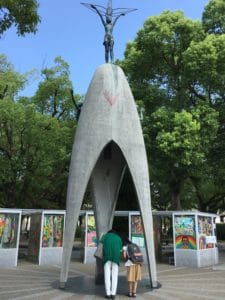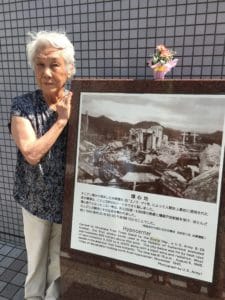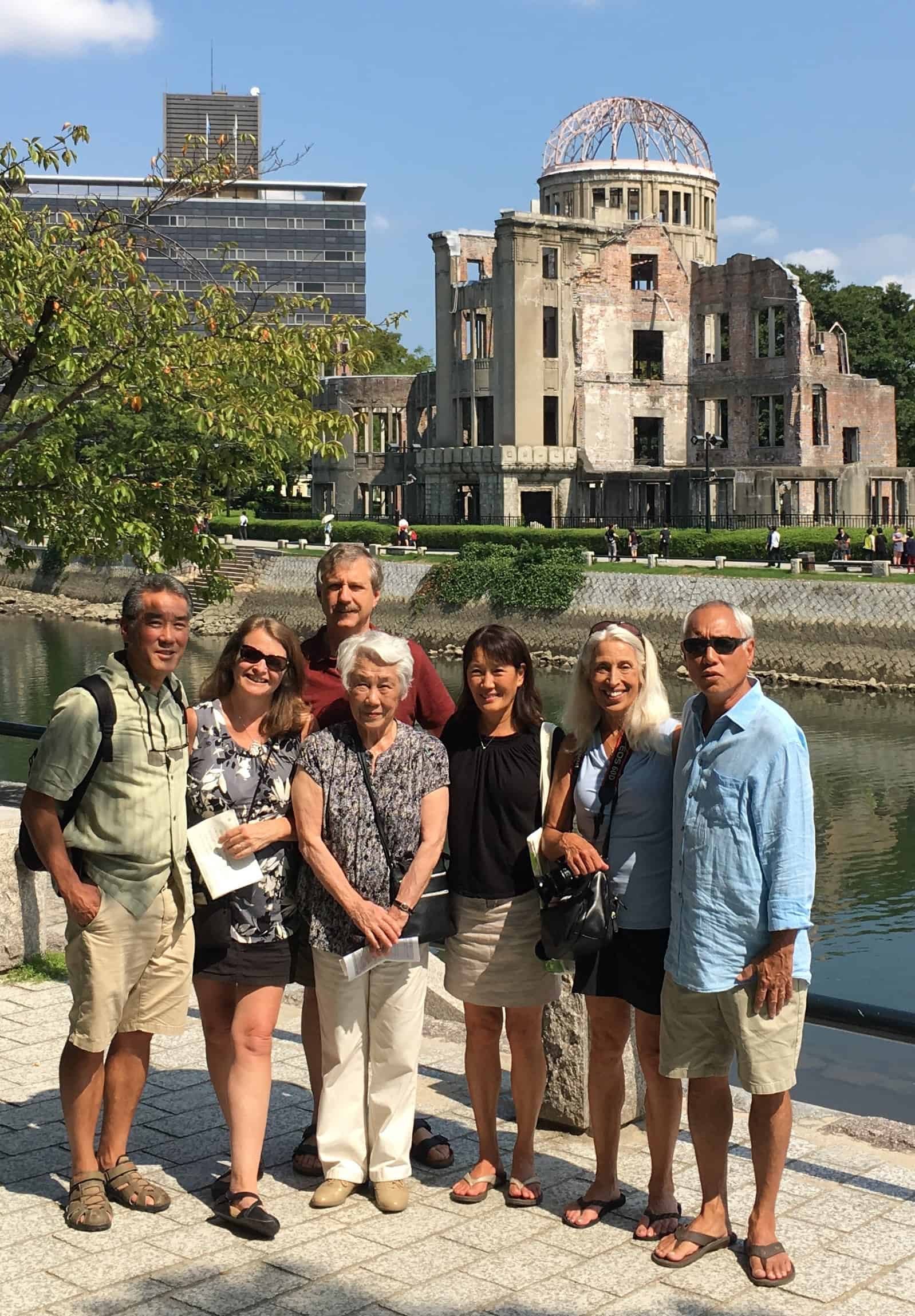
I am proud of my Japanese-American heritage.
My grandfather, Ichimatsu Kihara, emigrated to Seattle in the early 20th century. He and his brothers formed Main Fish Company, a seafood wholesaler. They had the first non-Anglo owned business on the Seattle waterfront. My mother was born in Seattle, but was sent with her mother and siblings to live in Hiroshima in 1933 as my grandfather guided Main Fish through the depression. My mother lived there until 1947.
My mother recently took my brother, sister and I, along with our spouses, on a pilgrimage of sorts to Japan. I had never been. It is a beautiful country with extremely gracious people. The most significant experience was visiting the Hiroshima Peace Park and Museum. I knew about the A-bomb, but the visit sparked feelings I didn’t know I had.
Here are my reflections.
The consequences of our decisions are often unforeseen.
In August 1945, the city of Hiroshima was creating fire breaks to prepare for bombing attacks. Most city buildings were made of wood, so fires created by an air raid could create massive damage. Fire breaks could limit the damage.
Most men were in the military. Women, and even older teenagers, worked in the

factories to support the war effort. Creating the fire breaks included work by school children, mostly 12 and 13 year-olds. Their job was to assist with clearing demolition debris. On August 6, 1945 there was a large demolition project scheduled requiring 8500 school children.
The project was less than 1000 meters from ground zero.
The fact that 2200 of those children survived seems miraculous. The force of the blast leveled everything within a mile and the ground temperature exceeded 3600 degrees farenheit for as long as three seconds.
Civilian casualties are a part of war. When President Harry Truman approved the use of the A-bomb, he knew that civilians would die. But he couldn’t possibly know that on the day the Enola Gay dropped the bomb, thousands more students than normal would be in harm’s way.
War is hell. Truman agonized over the decision to drop the bomb. When it comes down to it, he had to focus on military and political objectives. Even so, thousands of children died because they were in the wrong place at the wrong time.
The A-Bomb was a game-changer
It seems obvious to say, but we don’t realize how unthinkable such a weapon was at the time. Changes like this don’t happen often. But think 9/11. Prior to that day, one could not imagine a hijacker using a plane as a weapon of mass-destruction.
How did Japan respond to this paradigm shift? By developing Three Non-Nuclear Principles: to never possess, manufacture or allow the introduction of nuclear weapons into the nation.
Think about how counter-intuitive this was. Instead of trying to fight fire with fire, Japan responded with non-proliferation. This made (and makes) them extremely dependent on the US and extremely vulnerable to threats from North Korea and China. Yet, their prime minister declared as recently as last month that they would maintain these principles.
Jesus said when we are struck, to turn the other cheek. He also said to pray for our enemies. There is something redemptive about responding to violence with peace and prayer. The result is not death, but new life.
Nuclear weapons are a fact of life today. Most people hardly notice when North Korea conducts a nuclear test, which they’ve done twice in 2016 (once within the last month). Yet, Japan maintains its stance.
Events that create a paradigm shift require leaders to navigate uncharted territory. Nobody asks for this. But it’s true, nonetheless. And the path is often the one that seems least likely.
Forgiveness and Hope are powerful forces
My grandmother went back to the US in 1936. My mother and her siblings wanted to stay in Japan. When my grandparents heard about the bomb, they thought that all but my mom’s youngest sister were killed. It was the other way around.
By circumstance, perhaps providence, my mom was not in Hiroshima the day of the blast. The day before, she had gone to a friend’s in another town to get rice for her family. It was wartime and food was scarce, so when her friend told her there was rice, she went right away. She came back the next day, walking through the devastated city with a bag of rice on her shoulder.

Her youngest sister, Nobu, was 15. Normally she would take the train to work in the factory. That would have taken her out of the blast area. But she missed the train and had to take a streetcar which took her right through town. They never found her.
My mom recounts all of these events with sadness and occasional anger. But she always comes back to the fact that the bomb ended the war. She does not say that the end justifies the means. In typical Japanese fashion, she accepts what is for what is.
When you visit the Hiroshima Peace Memorial you get this sense. There is no bitterness. Only the resolve to build a new and better future.
I call this forgiveness and hope.
Some of our messes we create ourselves, but much of what we face we can’t control. Regardless, this idea that the past can’t be changed and we can only work toward a better future creates room for God to work.
When Jesus was crucified, the disciples were a mess. It was his appearance to them that gave them hope. And they went and changed the world.
I’ve heard my mother’s stories for most of my life. I’m grateful that we could visit Japan together with my siblings. It has brought my Japanese heritage and my Christian faith together.
Questions for reflection:
How do you respond when there are unforeseen consequences to a decision you’ve made?
What do you do when there is a paradigm shift?
How are you a messenger of forgiveness and hope?


